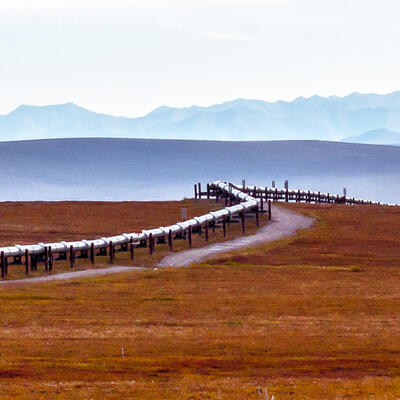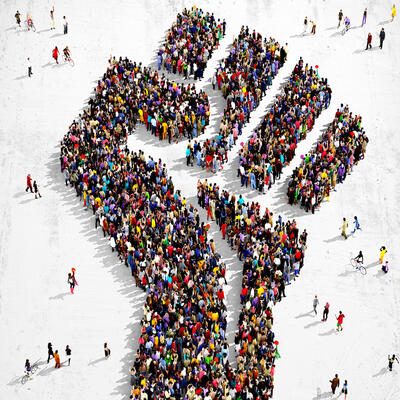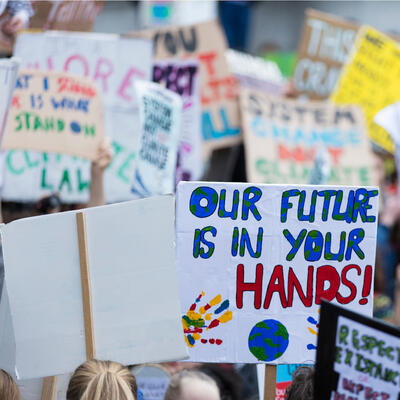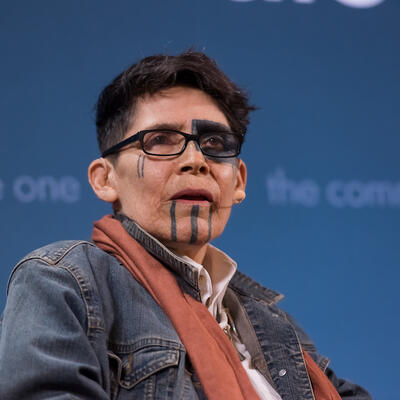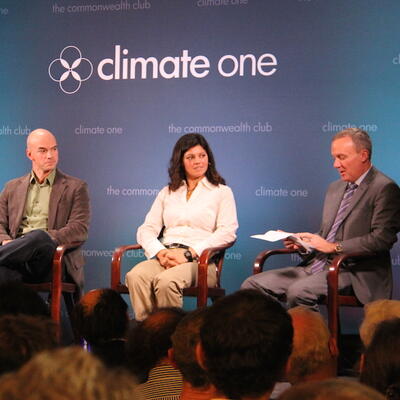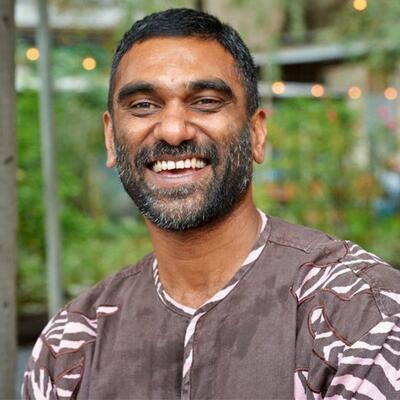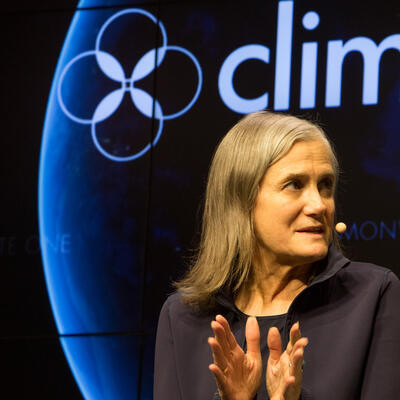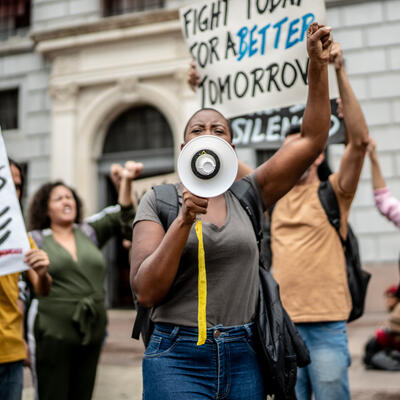
Get Up, Stand Up: What Actions Move the Needle?
Guests
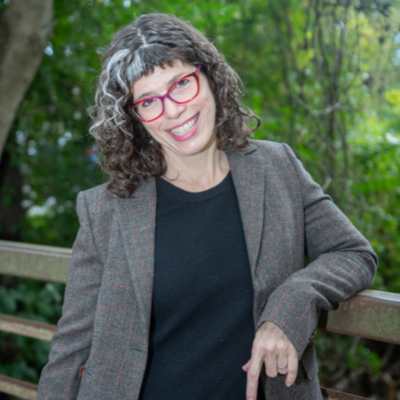
Dana R. Fisher

Ilana Cohen
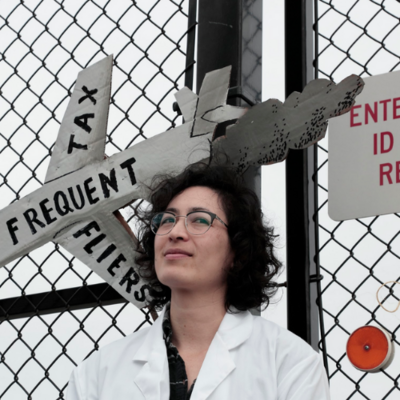
Rose Abramoff
Summary
From the Boston Tea Party to the Civil Rights Movement to Black Lives Matter, activists have long sought to bring pressing issues into the public consciousness. Climate activism is no different. This past Earth Day spawned a new ripple of climate activism. Activists protested at the headquarters of BlackRock in New York City, smeared paint on the casing around an Edgar Degas statue and even tried to block the entrance of the White House Correspondents dinner in Washington, DC.
The activist group Just Stop Oil sparked a heated debate when members of the group threw tomato soup on Van Gogh’s painting Sunflowers. While the protest did draw a significant amount of attention, it also received heavy criticism. It even received pushback from people who are sympathetic to the climate movement. Dana R. Fisher, Professor of Sociology at the University of Maryland and author of “Activism, Inc.” and “American Resistance,” says, “That’s the kind of disruption which I'm calling disruption and shock. And that is becoming increasingly popular.” But what are the consequences of that style of activism?
There is no doubt that the kind of shocking confrontational activism performed by activist groups like Just Stop Oil makes many people uncomfortable. It might even make it more difficult for some to talk about the climate crisis. But these groups believe that the more attention the climate gets, the greater chance action is taken. Fisher says, “Not only is it about getting public attention, they want to get media attention, and they want to basically reach out and try to mobilize more people in the general public.”
Prior social movements have had success bringing about meaningful change in the U.S., such as civil rights, marriage equality and voting rights. How does climate awareness compare to these movements? Fisher says, “The climate movement is really very, very similar to these other movements where there are these grand goals.”
The most successful movements have big broad goals that can be broken down into smaller, more specific goals in order to approach an issue from many different angles simultaneously. Fisher says, “Because there's so much science backing up the climate crisis, the climate activists are more capable of embedding these broader goals within more narrow campaigns.”
Scientists are often thought of as very buttoned down, often not contributing their personal opinions to public debates. But some scientists are now marching in the streets because they believe that the response to climate disruption has been inadequate and slow. Earth scientist and activist Rose Abramoff says, “We don't wanna be in the streets. We wanna be doing math in a quiet room. Not necessarily being chained to government infrastructure.” Abramoff paid a personal price for her activism. She was fired from a national lab after protesting at a convention of earth scientists.
While some people are throwing paint and blocking streets or events, others are filing corporate shareholder resolutions and legal complaints to move companies and academic institutions.
In September 2021, Harvard caved to a decade of pressure and agreed to divest its multi-billion dollar endowment from companies that produce fossil fuels. Ilana Cohen, lead organizer of Fossil Fuel Divest Harvard and co-founder of Fossil Free Research, says, “We've always recognized that divestment is a crucial step, but it's also only a first step and it's really a baseline for institutions like Harvard to align themselves with a just and rapid global energy transition.”
Episode Highlights
2:48 Dana Fisher on confrontational activism
9:21 Dana Fisher on the goals of the climate movement
16:42 Dana Fisher on the climate movement compared to other movements
21:18 Dana Fisher on diversity of tactics
37:49 Rose Abramoff on how she became an activist
41:36 Rose Abramoff on the what tactics are most effective
47:51 Ilana Cohen on what action she has been involved in
Resources From This Episode (5)
Full Transcript
Note: Transcripts are generated using a combination of automated software and human transcribers, and may contain errors. Please check the actual audio before quoting it.
Greg Dalton: This is Climate One. I’m Greg Dalton.
Ariana Brocious: And I’m Ariana Brocious
Greg Dalton: This past Earth Day spawned a new ripple of climate activism.
Ariana Brocious: Activists protested at the headquarters of BlackRock in New York City, smeared paint on the casing around an Edgar Degas statue. And even tried to block the entrance of the White House Correspondents dinner in DC.
Greg Dalton: There’s a spectrum ranging from confrontation to collaboration. While some people are throwing paint and blocking streets or events, others are filing corporate shareholder resolutions and some are using technology or policy levers inside organizations.
Ariana Brocious: Let’s listen to an excerpt of one of the events that really got people talking about the efficacy of climate activism. Last October, several activists from the group Just Stop Oil threw tomato soup on Van Gogh’s painting Sunflowers to protest the production of fossil fuels.
[Playback]
Greg Dalton: That's a powerful moment that got a lot of people talking, but those actions were condemned by many, including some people who are sympathetic to the climate movement.
Ariana Brocious: And though the painting wasn’t harmed, it was pretty polarizing.
Greg Dalton: Activism has a storied history of bringing important issues into the public consciousness, like civil rights, voting rights, and marriage equality. Most of those protests were peaceful and I really wonder about the efficacy of recent climate protests. Who is the intended audience?
Ariana Brocious Yeah but I think there’s a widespread sense of frustration. The climate crisis is getting to a point where even scientists are reluctantly leading protests.
Rose Abramoff: We don't wanna be in the streets. We wanna be doing math in a quiet room. Not necessarily being chained to government infrastructure.
Ariana Brocious: That’s Rose Abramoff, she’s an Earth Scientist and Activist who lost her job because of her activism. We’ll speak with her later in the show.
Greg Dalton: To put this in historical context and make sense of different flavors of protests we talked with Dana R. Fisher, Professor of Sociology at the University of Maryland and Nonresident Senior Fellow at the Brookings Institution. “Activism, Inc.” and “American Resistance.” I talked with her about what kinds of activism really bring about positive change.
Dana Fisher: this confrontational activism has gotten much more common. It also has kind of broken into what I think of as two different camps in terms of disruption. So, we have disruption like the disruption that just recently happened at the National Gallery here in DC or people who threw food, threw paint, used crazy glue. And that’s the kind of disruption which I'm calling disruption as shock. And that is becoming increasingly popular and we see it all around the world at this point targeting art, targeting meetings, targeting performances. There were some activists who stopped a plenary session at the American Geophysical Union recently. In all those cases, the goal of that tactic specifically is to get public attention. And as many of the activists whom I interviewed for my new book mentioned, not only is it about getting public attention, and they want to get media attention, and they want to basically reach out and try to mobilize more people in the general public, what they think of as you know, sympathizers to the movement.
Greg Dalton: But when those sorts of things happen I have to wonder whether they repel more than they recruit. That it turns more people off than it wakes people up.
Dana Fisher: Well, I mean I think the expectation here and the research backs this up is that it will not change minds. This is really a type of activism that’s about taking people who are already sympathetic to the cause and you're getting increasingly worried because of atmospheric rivers or because of forest fires or because of this extreme weather that's been happening in Europe or the melting, you know, glaciers, or the list goes on and on, or, or, or. And those people think they need to do something but they haven’t yet mobilized to do anything. That’s really the point for these activists, and in a lot of ways they use what we call the radical flank effect to push the activism to a more extreme place that mobilizes people to be more willing to participate in moderate types of activism and support for moderate groups. And there's a lot of research that documents that that works that way.
Greg Dalton: Right. We know that there’s what 9% of Americans are sort of hard-boiled deniers. There’s a big group in the middle that accepts climate change is happening according to the Yale’s Six Americas is probably the most authoritative poll on this. And so, what I’m hearing is it’s those people who say, yeah, climate change is happening, it's real, but aren’t really doing much about it. It's about activating that disengaged part of the population.
Dana Fisher: That's exactly right. I mean I would just say within that middle group. I think that most of the people who are engaged in this more destructive type of activism are really looking for the more left-leaning of those group; they're not even trying to get all the moderates. They’re trying to get the moderates who supported the passage of the IRA, but they are worried that it's not enough. Those people. And the idea is to bring them into the movement and to support more climate action and more extreme measures to get to the kind of climate action that's necessary. That's the only audience for this type of action. I’m a social scientist who studies activism. And I tried to parse out my new research is actually specifically pulling apart these different types of confrontational activism. There is very, very little research about what works, what doesn’t and how it works. So, I can tell you what we do know, but unfortunately, what we don't know is so much more and we really need to pull this apart better to see exactly what is working, what isn't.
Greg Dalton: The group Climate Defiance staged what they call the climate blockade at this year's White House correspondents’ dinner. And it’s part of a series of disruptive events. So, talk about that in terms of targeting the national media.
Dana Fisher: So, Climate Defiance is one of a number of groups that have been ramping up this type of confrontational performative activism. The action that took place at the White House correspondents’ dinner is a great example of this where people from many different groups were actually involved in coming out to participate in this blockade. It’s again, like all of these other actions are completely nonviolent forms of civil disobedience. And the hope is that by being there where all the media are, it helps to re-channel and redirect attention to the climate emergency and the need for more strident climate action.
Greg Dalton: And speaking of nonviolence. There is a recent film “How to Blow Up a Pipeline” recently released portraying some people who could be called ecoterrorists as the heroes. How do you think popular culture like film and TV can influence perceptions of activists?
Dana Fisher: Oh, I think that popular film and TV can absolutely have a huge effect on public opinion as well as the general public's understanding of an issue. The new film is presenting a very specific type of climate activism, which is more severe than anything we’re really seeing so far. It's much more monkeywrenching is what we call it. It’s destruction of property. And we really have not seen this on that level of destruction of property yet as a common practice amongst climate activists. That's not to say we won't in the future. As somebody who actually has a screenplay that is currently being considered amongst production companies right now based on one of my books which is set in the world of youth activism, I would say we need so much more popular culture to be thinking about and discussing and understanding this world. But, you know, “How to Blow Up a Pipeline” is a fictional depiction that is an important story about a very, very, very narrow subgroup within the climate movement.
Greg Dalton: We actually have a recent episode focused on how climate is portrayed in Hollywood titled Lights, Camera, Inaction. So, people can check that out. Political movements are focused on goals that can be specific: oust a dictator stop a war, overturn a Supreme Court decision and less specific in conceptual justice equality, etc. In the case of climate there are very specific numbers overarching numbers 1.5 or 2°C of postindustrial heating and many sub-goals, of course. How do you see the goals of the transition away from fossil fuels in the context of other social movements?
Dana Fisher: I would just say that the climate movement is really very, very similar to these other movements where there are these grand goals these big goals, you know. Climate justice, you know, achieving the Paris goals, which is actually a more specific goal than just climate justice of course, which is just transition away from fossil fuels toward a clean energy future. We see the same thing in other movements. And in fact, I think that because there's so much science backing up the climate crisis, the climate activists are more capable of embedding these broader goals within more narrow campaigns. So, if you take for example you know the divestment component of the climate movement. There are specific tangible targets be that at a specific university or broadly right now there's a growing movement to get fossil fuel funding out of academic research in the United States. And they'll be very, very specific targets in terms of goals for a year about shifting faculty support or shifting overall university support. And then there’ll be the broader one which is by getting fossil fuel funding out of research we’ll see more, you know, open research that isn't biased by the sources of funding which we do know is the case, right. And so, I think that for all long-term social movements you have these kinds of stacked goals. The big question you know in a lot of my work is how do we get from these activist tactics to those goals which in some cases are so far away from the actual tactics and the targets of the activism. Say, for example, when Declare Emergency had activists spilling paint covering of this Dégas statue. How exactly does that lead us to reducing CO2 emission concentrations in the atmosphere to the degree that we actually hold global heating below 1.5°C? That's a very, very, very big, big arc to get there. And, you know, it goes through public perceptions to theoretically getting public pressure to then electoral politics that then theoretically leads to elected officials actually voting in a way that they say they will when they run for office which we all know is you know a question whenever you support somebody, to that whatever they support getting actually passed and implemented effectively and then might lead to these goals. And so, it’s such a long and indirect road.
Greg Dalton: Right. And which is why people might choose other more direct things that is not either/or, but you know if I take personal action, switch out to a heat pump or something like that. It’s like I know how much that's done. It doesn't solve the big picture, but it's more direct control.
Dana Fisher: I would just say that’s absolutely true. One of the things that I've talked a lot with climate activists about is the types of individual measures you can take simultaneously. But as somebody who spent a bunch of time studying this and working with the IPCC on this, we now there is overwhelming evidence that just our individual actions like we just put solar on our house is absolutely insufficient for getting us where we need to go with regard to the targets needed to meet these deadlines that the IPCC has identified.
Greg Dalton: Right. Necessary and insufficient. In 2014, an estimated 300,000 people attended the People's Climate March in New York City around the opening of the UN general assembly when all the heads of state are in town. I remember observing that from the sidewalk and seeing UN Secretary-General Ban Ki-moon and Jane Goodall amid this massive, two small people, amid this massive sea of humanity. What did that accomplish?
Dana Fisher: Well, actually the first, I mean I’ve been studying the People's Climate March since they started the first People's Climate March in 2014 was the first time we had a large-scale climate march like that and demonstration connected with the UN meeting ever held on US soil for climate change that is. And it really was an amazing moment for collective identity formation and development amongst groups that had overlapping interests, but, you know, members disparate kind of tactics and ways of working. And we saw people in the streets at that first People's Climate March who came from all over the country. They came from the labor movement. They came from the women's movement. They came from the antiwar movement. Code Pink was there for example. It was an amazing kaleidoscope of civil society in America on the left. And what was really important about that moment was everybody coming together under this umbrella about, you know, stopping climate change. And we saw you know this same kind of model played when you move forward to 2017, with the second People's Climate March which happened here in Washington DC, and we had a couple hundred thousand people out for that one as well.
Greg Dalton: Right. For me seeing the nurses, that was a really big one there. Seeing healthcare workers coming into climate which I hadn't seen that much to that point. Another New York centered protest movement was the Occupy Wall Street movement, which was leaderless by design. What's the role of leadership in social movements?
Dana Fisher: Well, so Occupy Wall Street was particularly interesting. by following the philosophy of being leaderless on the one hand it empowered all the people who participated. But on the other hand, over time, the movement did not have lasting power in terms of its specifics of that movement and that movements demands. However, if we track the people who originally were activated during the occupy movement. You can see them throughout all sorts of movements through within the United States today. So, it really did have a legacy but the legacy is moving to other movements. And I think that that's much more common when you have a leaderless movement. In my research around the climate movement I’ve actually documented the way that climate justice has integrated economic justice and racial justice and become really a central theme for the activists who are involved in the movement. And one of the things that I believe that harkens back to in terms of the way that justice got folded into the movement and the movement's identity and its goals was thanks to the Occupy Movement.
Greg Dalton: Please help us get people talking more about climate by giving us a rating or review. You can do it right now on your device. You can also help by sending a link to this episode to a friend. By sharing you can help people have their own deeper climate conversations.
Coming up, maybe there is no one tactic that will move the needle on its own.
Dana Fisher: Many administrations talk about this kind of, all of the above strategy for dealing with energy. I think of it as in all of the above, strategy for thinking through tactics of activism.
Greg Dalton: That’s up next, when Climate One continues. This is Climate One. I’m Greg Dalton
Let’s get back to my conversation with Dana R. Fisher, Professor of Sociology at the University of Maryland and Nonresident Senior Fellow at the Brookings Institution.
It can feel like climate activism has had a difficult time breaking into the public conversation compared to movements such as civil rights, or anti-police brutality.
Dana Fisher: I'm gonna speak for my colleagues who do work, specifically around racial justice and studied the Civil Rights Movement to say that it took years for civil rights to resonate and actually for the movement to become broad enough to put the kind of political pressure on, uh, the powers that be in terms of economic and political actors to get the changes that were the target of the activism. I mean, in the Black Lives Matter movement, it was only after George Floyd was murdered and his murder was actually, was basically available to everybody through social media that we saw this huge mobilization, which turned into the largest sustained activism in US history. But that was well past when the Black Lives Matter movement began. And you can think about all the other people who had been murdered by police, who's who didn't actually motivate, the kind of sustained activism that did lead to some incremental change, but clearly not nearly enough. So I would just say that we're, you know, we're all on a long road and, well, I've been studying the climate movement since the 1990s when, you know, climate change started becoming a focus for the UN and people started talking about it and, and having these annual international meetings. Initially when we were doing work on climate change and the climate movement, everybody was talking about, um, the precautionary principle, right? So the original idea was we need to do something about climate change because the science suggests that this is gonna happen, but we're not exactly sure. And you know, you really have to do this for the polar bears, not for what's going on outside your window. Um, and today, The world has changed quite substantially. I mean, the world has warmed quite substantially too. But what we also have noticed is that, you know, a third of Americans said in the past year, they had experienced some sort of a climate shock, something that was reported by the Washington Post recently, and that really changes the way that the movement resonates. So I don't think we can think back to the 1990s to really think about the climate movement, even though there were people working within the climate movement then. But I think that as the issue becomes more salient, because people start to feel the effects of forest fires, of extreme weather, of atmospheric rivers, et cetera and so forth, drought. We had, you know, the snowless winter here in DC for example, and much of the Northeast. So as that happens, the movement will grow because people actually are starting to be concerned about it. And it's, it's, it's a different process than say, civil rights where we have, you know, people who have been exploited for too long in our country and treated with systemic racism. In this case, we're talking about something that's outside of society, and many people initially didn't feel the effects. And unfortunately, based on what the science says, we'll be feeling the effects for years to come, and it will become, you know, worse and worse until we do something more.
Greg Dalton: Right. And there's a difference of that lack of that human face, the victim or the, the villain that is so clear in, you know, George Floyd's murderer and, you know, Bull Connor's dogs and those, those sorts of things. Elsewhere in this episode, we speak with climate scientists and activist Rose Abramoff, who talks about coordinated diversity of actions. How important is that, coordinating different kinds of actions?
Dana Fisher: Well, the way that Rose is describing it is a little different than the way we do in the social sciences, but basically, when we think about a diversity of tactics, the way we think about it is that activists have a whole toolbox of different tactics available to them, and that a diversity of tactics is necessary when an issue becomes severe enough. And it's the only way for movements to be able to affect the kind of change that's needed. And we've seen that if we, you know, whenever we look at movements that are trying to push for political change that you need to have people working within the system, through the institutional political system at, at the same time as people working outside this system as outsiders and even pushing through confrontational activism and civil disobedience, which is, you know, kind of the more extreme, well, not as extreme as, you know, violence of course, but still peaceful, but the more extreme version of that.
Greg Dalton: Right. And we see that in climate where there are a lot of environmental organizations that try to work with polluters, work with corporations, work through shareholders, for example, to file resolutions with fossil fuel oil companies and then's other ones who are kind of, protesting outside and others who kind of want to be in the boardroom, and have a voice there. And that's kind of what I gather is the diversity of tactics.
Dana Fisher: Yeah, exactly. I mean, the way I think of it is, you know, the, the, well, the Biden administration, the Obama administration, many administrations talk about this kind of, all of the above strategy for dealing with, you know, energy. I think of it as in all of the above, strategy for thinking through tactics of activism, right? And there's all sorts of activism that's, you know, me as an individual, writing letters to elected officials, voting, trying to help support the kinds of candidates that I want to see elected. As well as me doing things like lobbying them once they are elected or working with the businesses that I support, boycotting, buycotting. But also I can be outside in the street yelling and even, you know, supergluing myself to something, maybe.
Greg Dalton: In your book, American Resistance, you wrote about distributed organizing, a bottom-up approach to organizing that relies on technology to mobilize and connect people. This was a tactic used by the Bernie Sanders campaign in 2016, built on tools created by former campaigns of Howard Dean and Barack Obama. What lessons can be learned from distributed organizing and how could it be used effectively by climate organizers?
Dana Fisher: That is such a great question. Okay. So distributed organizing is a great way to get people and reach them without them having to come into a brick and mortar building because it takes, it takes advantage of the technologies that we, you know, I'm gonna motion to my phone that we all are carrying around all the time and it's, it's a wonderful tool. And has been effective at getting people to do things like volunteer to phone bank, or even go door to door in canvas for electoral campaigns. We saw it during 2022, for example. However, there's a question about the degree to which it actually motivates people to get embedded within a community of activists, a community of people in, you know, in their actual community. Right? And the challenge of distributed organizing is using the technology to connect people in ways that then matter on the ground where we live, as well as digitally connecting us to a global network of activists. And that's something that I think that the best example of this within the climate movement may very well be Fridays for Future. If we look at what, uh, Greta Thunberg started and the Fridays for Future folks have continued by connecting people digitally, connecting them to call for an action. But notice that besides during Covid, those actions were in person, where people actually were mobilizing to do stuff in their communities, to protest, to have a climate strike, to run campaigns in their communities. And I think that's a great way to think about the strength of distributed organizing. The challenge is when everything's online, because it's really hard to, to sustain that kind of activism and for that activism to matter in the same way when it doesn't build these lasting, what we think of as thick connections in communities with people whom we know, rather than the thin connections that you get online.
Greg Dalton: Right. And there's a term called clicktivist, which is kind of disparaging that you think if you dislike something on social media that like you've accomplished something that, you know, just from the comfort of your own home. You mentioned –
Dana Fisher: Oh yeah. The good example is sharing a video on TikTok now. Right. Same idea.
Greg Dalton: Yeah. That, that changes the world. so you mentioned Fridays for the future started by Greta Thunberg. and Jane Fonda picked up on that and started her fire drill Fridays protests and Washington DC She was arrested five times, brought other big name celebrities with her. What did you initially think of Jane Fonda's protests? And what do you think of that now? Tell us the truth.
Dana Fisher: So when Jane Fonda started, I thought, oh my goodness, I can't believe she's trying to exploit this, the energy and enthusiasm these young people on the streets and doing these, you know, these climate strikes to do her own thing. And I made fun of her a little with the red coat going out there every Friday, getting arrested for, you know, these extremely, um, timid civil disobedience, which is, she was standing on the steps of the capitol, which you're not allowed to do. People are a lot more, um, careful about that these days after January 6th, but back, this was before January 6th. So initially I, I did, I did make fun and I was, I was out studying the youth climate movement, so I was actually, I was right there on the grounds of the Capitol with the youth climate activist when Jane was doing these events, these Fire Drill Fridays. Um, and so I ended up starting to attend them to just see what was going on. And I have to say that she completely won me over. And initially what I thought was just this opportunity for an older activist, an actress to take advantage of her notoriety, to glam onto an issue. It became very clear to me that she was committed to the issue. She brought out people who were experts in certain aspects of the climate crisis to talk about the issue. She brought in notable celebrities to help use their megaphones to get more attention for the, for the conversation that was taking place. And she actually helped us spread the word in ways that unfortunately, you know, you and I probably can't do by just, you know, going on social media because she has such, you know, such a wonderful platform for herself. And so I, I thought it was wonderful how she lifted up the youth climate activists. She lifted up a lot of people who were working on climate justice in interesting way, and, and her work is continuing today. So she won me over as, as much as I did start in the beginning by, you know, by, uh, being critical of, of her efforts.
Greg Dalton: What you're talking about brings up the questions of age and class. So how do those filter into this? Are these movements elite led? Is it all sections of society that lead these movements successfully?
Dana Fisher: Well, okay, so let's start with the age point. We initially were not thinking that young people were particularly politically active. And actually, if we look at the period of the resistance to the Trump administration and its policies, which you, which started at the women's march, the day after the inauguration in 2017. One of the things that I documented in the work that I did across all the protests that happened, the big protests during that period of time, was how the resistance was really fueled by and powered by middle-aged white women. The average age in the streets at all of these events was, you know, people 39 and above, mostly in their forties at almost all these events. And actually at the women's marches, it was always 42 years old. For some reason, these are not young people. At the same time as young people started getting involved in Fridays for Future, what we saw is that young people were becoming more politically active generally. And I think that at this point when we go out to events, I expect to see people of all ages. In fact,I was just at the Earth Day event in Washington, DC last weekend where my research team and I collected data there at the event. Now, the event was a relatively small event. It was organized by a lot of these justice focused groups and groups that are willing to do civil disobedience. So it's not mainstream environmental. At the same time, what we found was the average age was 29 in the crowd there. So it was a younger group. And I think that this is providing more evidence that young people are involved today. We do know, though, that young people are more likely to be involved in civil disobedience, and that was the case during the civil rights period too. With regard to class, you know, I've collected data at all sorts of protests, including the protests against George Floyd afters, murdered at the women's marches, the March for Our Lives and climate protests more recently, and across them all we see that people who are more highly educated, are much more likely to engage in this kind of activism. And part of that I think is because the more privilege you have, the more capacity you have to take time off to protest. And the more likely you are that you're not going to lose your job or lose your hours and not be able to feed your family. So that makes sense. And while we do see growing diversity racially and ethnically, we still see that most of the people who are participating are highly educated. So that's a place that still needs to get more engaged. And one of the things that I'm talking about in my new book, which is called Saving Ourselves from Climate Shocks to Climate Action, is the role that the labor movement needs to play in addressing the climate crisis and the way that we need to move forward by thinking about how labor and climate activism have to be connected together. Unfortunately, historically, a lot of climate action have been not well received by the labor movement, I'll say it that way. Particularly, you know, efforts to stop pipelines and to stop a lot of development, and that's changing their groups out there that are currently working to try to address that, to try to combine the efforts in a more effective way so that people in labor and people who are working with unions don't feel like climate activists are trying to shut down their work and their livelihoods. I think that will do a lot to help to diversify the movement.
Greg Dalton: Right. There are some people who have said to me that your pipe fitters are the biggest political force slowing down electrification, decarbonization cuz they're in there saying, no, we want that methane gas to, pipelines and work to continue. Research done by Stanford Sociologist Rob Willer says that protests lose public support if they use violence as a tactic. His studies showed that anti-racist groups lost public support if they were perceived as instigators of violence. The people became more sympathetic to the white supremacist if they were perceived as victims. So how does that translate to climate as it becomes radicalized defacing property. Not violent yet, but it's, some part of it seems to be going in that direction.
Dana Fisher: I think it's absolutely going in that direction. so I know Rob and I know his work, and he actually has other work that conflicts in terms of the findings with the findings that you're talking about here. So there's absolutely no question that more research is needed about this, because that's one particular study. But then there are other studies that say that it doesn't work exactly that way. And really what we need to do, instead of these hypothetical examples of activism, we need to have people exposed to real activism and see how they respond. There is no question though that all the research out there documents how defacing, you know, property and violence turn people off. But it doesn't turn everybody off. And in fact, a great example of this, a case in point if you will, is if you think of back to the civil rights period where it was actually the more aggressive activism that did sometimes turn violent, although much of that violence, was instigated by counter protestors and law enforcement that led to more violent confrontations in the street is actually the reason why we finally saw the political change that happened, but it was completely unpopular within the general public, and I would expect that if we continue to see climate activism getting more radical, we will see growing dissatisfaction and lack of support for that kind of activism. But still, it may be needed.
Greg Dalton: Right. John Lewis was sort of ousted, I think from the Southern Christian Leadership Conference cuz he was seen as a moderate and people were asking for a stronger line. So we've talked about people crossing lines, scientists have crossed over into activism, as we've heard in this episode. Driven by increasing floods, fires, and droughts. You go to a lot of these protests who observe them. Have you considered crossing the line yourself to join the protests that you're talking about?
Dana Fisher: Well, many of the people who have done this work of getting scientists to cross the lines, have actually approached me and asked me if I would join them. And my, my answer is that my, my identity is all about bringing data to power. And I think that it's extremely important for me to do my research with an objective angle and to not be one of the participants within the activism when I'm doing my research. It also gives me a better platform for talking about my findings when I'm not a participant in these act, these actions. And so for now at least I see that as my role and I do think that my platform is much bigger because of that. There was one scientist who was involved in the IPCC, who at the time had been actively involved in Scientist Rebellion and uh, climate activism. And it was challenging for the IPCC and I think, I'm not saying that I won't in the future at some point, perhaps participate in activism, but I won't be studying it while I do. And right now I think my strength is really in providing the data that I have that you can only get from being out in the streets. And certainly I'm sympathetic to the cause. Um, I'm not sure what the best tactic is, but I do know that we certainly need many more people raising their voices to try to stop the climate crisis because things are getting bad.
Greg Dalton: Dana Fisher, Professor of Sociology at University of Maryland and non-resident senior fellow at the Brookings Institution. We could keep talking. This is fascinating. Thank you. Really brought a lot of light to this. Thank you very much.
Dana Fisher: Thank you for having me, Greg.
Greg Dalton: Coming up, what drives a scientist to get out of their lab and into the streets?
Rose Abramoff: The speed with which we are approaching these irreversible tipping points in our Earth’s system really impressed upon me that, ok, I can’t keep doing the same thing over and over.
Greg Dalton: That’s up next, when Climate One continues. I’m Greg Dalton.
Ariana Brocious: And I’m Ariana Brocious. This week we also asked you what got you involved with climate issues. Lets listen to messages we received from Phillip, Andrew, and Olga:
Phillip: My father was an engineer at Shell Oil Company for 35 years, and when I was a kid, he was already telling me that we need to switch to alternative fuel, because.we're going to make the atmosphere warmer. This was 1974, 76, no one had any idea.
Andrew: I'm the father of a four year old, and last summer when she was three, I read in the New York Times about a group of toddlers, four-year-olds, five-year-olds, dressed like superheroes and their parents who went to the CEO of a big investment bank’s summer house, and said they really wanted him to be a superhero on climate, not a super villain.
Olga: Although I've been active at environmental issues for many years, seeing a YouTube presentation of a young Greta Thunberg speaking before the UN moved me to tears. She was, it was just heart wrenching to see a 14 year old kid so passionately concerned about what was going on in the world and how political leaders were not acting.
Greg Dalton: Those are powerful, and what strikes me, Ariana, is those are all very personal human to human connections that activated and motivated those people, which is also what activated people on marriage equality, civil rights, and other issues, is that human connection.
Ariana Brocious: Yeah. And the irony here is that we're all affected by climate. Every single one of us, and we're going to be increasingly affected in the future. But because of the way climate can feel distant and kind of like it's affecting others, it can be harder to have that personal connection. So it's nice to hear from these listeners about how they've, you know, been motivated, and we do wanna thank those who called in and left their messages with us. We're hoping to get more of those in the future. I also spoke with two activists who approached their work in slightly different ways.
Greg Dalton: As Dana Fisher would call them, a shocker and a disrupter.
Ariana Brocious: Later I’ll speak to Ilana Cohen, lead organizer with Fossil Fuel Divest Harvard and co-founder of Fossil Free Research. She fits more into the disruptor category. But first let's get into my conversation with Earth Scientist and Climate Activist Rose Abramoff. Rose is someone who paid a personal toll for her activism. She was fired after protesting at a convention of earth scientists.
Rose Abramoff: When I was a postdoc in Lawrence Berkeley National Lab in California, I was working on this warming experiment in Utqiagvik, which is the northernmost, city in the north slope of Alaska. And this is a place where it's supposed to be, the soils are supposed to be frozen all the time. They're called permafrost soils. But the active layer, which is the unfrozen layer of that soil, is getting deeper and deeper each year. And, I went up there for two field seasons to help out with this warming experiment and, and just seeing the landscape, the, the. The land literally collapsing after it's melted and forming these slumps. You know, just looking at it without knowing what it is, it may not look so devastating, but knowing what that landscape is supposed to look like and then seeing what it is like, it always basically brings me to tears to think about. Um, and so, yeah, I think that there were, You know, a lot of climate scientists really struggle, I think with the interpretations of their data and like what it means for humanity. But for me it was like when I was actually interacting with those landscapes, that's when it became real for me.
Ariana Brocious: Scientists can sometimes be thought of as buttoned up. Um, maybe even a little, um, not exciting perhaps, but Scientists Rebellion is a group of scientists that are participating in non-violent civil disobedience. Why did you choose to join that group?
Rose Abramoff: It's interesting that you're, you started with a characterization, which I totally agree with, of scientists as being really buttoned up rule following people. Cuz I really identify with that in many ways. And it almost reminds me of, you know, the, um, old, there was a slogan that I saw on poster boards during the March for Science era, um, that said, you know, even the introverts are out here. It was something like that, you know, like, it's so bad. Even the introverts are out here. And so, and I feel like that's very much the, um, Kind of like cultural implication behind Scientist Rebellion, that it's so bad. Like even the scientists are out here, the scientists who are, you know, not supposed to have political opinions or at least public political opinions. Um, and who are supposed to be, you know, calm and measured and just giving you the facts. Like it's gotten to the point where like, even we cannot, you know, maintain our composure. because yeah, we don't wanna be in the streets. We wanna be, you know, doing math in a quiet room. So, um, well, I mean, maybe not everybody, but, but that is, you know, that is many of our happy places and not necessarily being, you know, chained to government infrastructure or what have you. So, for me, joining Scientist Rebellion and joining the climate activism movement in general is really a result of, of all of the research that's come out over the course of my career, um, out of, you know, Serving as one of the reviewers of the sixth assessment report, the most recent United Nations Climate Report. And just like reading those passages, which deal with the carbon budget that we have left, the amount of time that we have left, the speed with which we are approaching these irreversible tipping points in our earth system. Um, really impressed upon me like, okay, I can't. I can't just keep doing the same thing over and over, which was at, up till that point basically like education, you know, like community engagement. In this sort of traditional sense, I felt like I, I needed to try newer untried things, to see what would work. I sort of felt like, you know, we needed to take experimentation to like, now is the time to try every possible, avenue for progress.
Ariana Brocious: In this episode, we're exploring different types of activism and how they affect change. You've chained yourself to the White House Gate and have been arrested three times for non-violent protest. Which of those actions in your mind, has been most impactful in terms of trying to accomplish the change we've been talking about?
Rose Abramoff: It's it's one of the main things that I often return to is, you know, which tactics are the most impactful? and I think that there are multiple ways to measure impact. So there's, you know, media impact, like how much of a media splash did it make, how much awareness did it create? and then there's, you know, political impact, like, did we actually change any policies? And I think the answers are a little bit different depending on the metric that you're using. So chaining myself to the White House Gate for example, created a lot of media impact, just because. It was dramatic in itself, and it was also coupled with this very large mobilization of hundreds of scientists all around the world taking action on the same day. and then there's, you know, political impact, which I would probably assign to, um, a coordinated action we did that was targeting luxury emissions. So a lot of scientists, again, in a coordinated effort, protested private jet terminals. Of course we haven't seen many policy movement, um, against private jets in the United States to my knowledge. But, for example, shortly after, um, our private jet actions, which occurred in November of 2022, France moved to ban short haul flights. This was something that was already in the pipeline, but really like gained strength I think, as a result of, of the actions we were taking. And then recently, um, Just earlier this month, in early April, um, the Schiphol Airport, which was the location of one big Greenpeace organized and Scientist Rebellion, you know, contributing, non-violent direct action on private jets. You know, there were people like riding bicycles on the tarmac. It was a really fun action. That airport recently proposed a ban on private jets by 2025. And so, like these are kind of real policies that I don't think would've happened without the actions that we had taken, you know, coupled with like, other political work. And so, yeah, I mean, yeah, like it really like, to me, having campaigns that are coordinated, um, to the extent that's possible, like in time and space, like having multiple groups in different locations to get that larger media impact. And then also coordinating with like the political arms of the movement, that are sort of working on the inside to get to get things passed, can make things more impactful. But yeah, often it's really hard to say, you know, for example, There's been kind of a consistent, um, effort by, um, groups in, in, um, DC like Extinction Rebellion DC and Declare Emergency, and a lot of, like many groups that I, you know, can't, can't remember to try and get President Biden to declare a climate emergency or to shut down the Willow project and you know, of course, despite all of those efforts, you know, that hasn't come to pass, neither of those policies have come to pass. Although you could also claim partial victory by saying, well, you know, the president mobilized the Defense Production Act, the president, you know, Like put forth the the infrastructure bill has a lot of interesting stuff in it. So, there are wins we could claim and, and there are, you know, wins that we can't claim and sort of like predicting hurricanes. It's, it's a little bit impossible to say, you know, like we contributed to this, um, by, you know, some percentage.
Ariana Brocious: You were fired from the Oak Ridge National Laboratory after protesting at the American Geophysical Union meeting in December of 2022. Can you tell us what led to your decision to protest and then what happened after?
Rose Abramoff: Sure. This is a good example of an action that had a much larger effect than I thought it was going to have. So my colleague Peter Kalmus and I were attending this earth science meeting. It's a meeting that we commonly attend, to present our scientific research. And so we were both planning on attending this meeting anyway and thought, okay, well this is the largest. meeting of earth scientists including climate scientists. And so this is sort of the largest agglomeration of people who really understand this issue and could be more active, you know, could take a greater role, either in direct action or just in advocacy on this issue that we really largely aren't seeing right now or up to this point, to the extent that we think there needs to be action. And so we thought, okay, what's a way to sort of convince people to take greater action? So we thought, okay. The plenaries are extremely well attended, and often very cool. And so let's, let's hold up a banner at one of the plenaries and, you know, take about 30 seconds. We didn't wanna interrupt the program itself, and just make a plea. And we basically said, You know, scientists have such leverage and public credibility and power really to communicate and let's use that, and find a way to take action. That was basically the message. And of course, because we were doing something which was unplanned and unsanctioned and arguably disruptive, we were thrown out of that conference. My employer essentially fired me for, um, For doing a, a personal thing on work time, because I was at this conference, you know, presenting my research under the auspices of Oak Ridge National Lab, which is what I was doing for the first half of the week, was, you know, chairing sessions and presenting posters. And so yeah, that was their reasoning, um, reasoning, which, you know, I understand, but I think it's certainly subjective. it definitely created a little bit of a firestorm in the scientific community about, you know, what are scientists, free speech rights, um, and you know, where do they end? A lot of people got really nitpicky about sort of like, did I break the rules or did I not break the rules? but I think the more interesting question is, you know, let's assume for the moment that I was at least pushing against what the rules were. And, and why? Like, why did I feel compelled to do that? is to me the more interesting question.
Ariana Brocious: Rose Abramoff is an earth scientist and climate activist. Thank you for joining us on Climate One.
Rose Abramoff: Thank you.
Ariana Brocious: Let's hear from another climate activist who has taken a variety of different approaches. Ilana Cohen is lead organizer of Fossil Fuel Divest Harvard and a co-founder of Fossil Free Research, a group dedicated to getting fossil fuel industry money out of university research. As part of Fossil Fuel Divest Harvard, she has engaged in every kind of action, from staging fake oil spills to filing a legal complaint with the Massachusetts Attorney General.
Ilana Cohen: The mock oil spills are so fun and dramatic, very sticky that I will say. But a really good way of galvanizing public attention. When we stormed the field of the Harvard-Yale game in 2019, which was a protest I helped coordinate to call attention to the need for divestment at these two incredibly elite universities. It was this huge galvanizing moment for the divestment movement nationally and getting the chance to help organize that and then to to be there in person to see all of this incredible support from the folks who were in the stands of that game when we disrupted and all of the support that was out poured afterwards was amazing. But I do think our legal complaint, which I helped write, was a very key turning point in winning divestment at Harvard and has since proven to be a really effective strategy at other campuses around the country. There have been about a dozen or so complaints similar to ours that were filed in the time since we went to the attorney general, calling for Harvard to divest. And when Harvard announced its divestment, I mean it basically quoted verbatim the crux of our legal argument, which is that it actually has a fiduciary duty, The Harvard Corporation has this duty to invest in a way that is in alignment with the university's charitable mission, and that is not investing in fossil fuels, which are destroying young people's futures and putting, um, planet and communities in peril.
Ariana Brocious: in 2021, Harvard admitted those investments in the fossil fuel industry were incompatible with the university's mission. It's now allowing its investments to expire. What did you think and feel personally when Harvard announced its divestment from fossil fuels?
Ilana Cohen: You know, in some sense I was really surprised, to be honest, because it was such a hard fought campaign. I mean, my peers and I who came in in the fall of 2018 relaunched the campaign that just had years of tireless organizing. But really we were building on the work of students, alumni, faculty who had been organizing since, you know, 2012, 2013. So this divestment, this, this achievement, um, which was, you know, historic nationally and internationally, was a decade in the baking. Um, and so it was almost just hard to believe when I like just opened my email one day in class and started getting all these messages from my fellow organizers that Harvard had finally committed to divest as 53 billion dollar endowment. But I think the other thing I really felt was just this deep sense of gratitude to all of the people that I've organized with. It was a real, you know, the moment was a testament to the power of what people can achieve when we work in grassroots ways and when we persist and when we get creative and think outside of the box in order to move these incredibly intransigent and antiquated institutions like Harvard that, you know, are kind of part and parcel, in some ways of the carbon economy as it stands right now.
Ariana Brocious: As you mentioned, getting the university to divest its fossil fuel holdings took over a decade of pressure. As you look at ahead at all the other steps that need to be taken, in the climate transition or energy transition, what do you think of that decade long time scale? And what kinds of activism do you think are appropriate relative to the urgency that you and others feel?
Ilana Cohen: I think for many of us in the divestment movement, certainly for myself, we've always recognized that divestment is a crucial step, but it's also only a first step and it's really a baseline for institutions like Harvard to align themselves with a just and rapid global energy transition. And what really needs to come next is a complete severing of ties to oil and gas majors that are working on projects and investing in the kinds of infrastructure every single day, that is just locking in absolutely unfathomable levels of planetary warming. And so by cutting ties, I mean one, and this is a place where I, I personally work the most, adopting fossil free research policies, so preventing fossil fuel companies from being allowed to engage in research partnerships and to fund research around the climate transition when we know that that creates a systemic risk of bias in research outcomes when we know that fossil fuel companies are relying on this research to further their agendas and to legitimate themselves in the public eye. And then of course, secondly, kicking big oil out of on-campus recruiting, stopping these companies from being able to basically create a pipeline for youth to enter dead-end jobs that are inimical to their own future wellbeing. And then, yeah, going further and just really making sure that university campuses are spaces that are dedicated to the development of tomorrow's leaders and spaces to share and produce and expand knowledge of real, genuine climate solutions that respond to community concerns and that are accountable to the public, rather than be places that are embracing these companies that have agendas completely opposite to what we need to achieve.
Ariana Brocious: So for Fossil Free Research, what tactics are you using and why those tactics?
Ilana Cohen: So first, you know, Fossil Free Research is exciting because it's new and it's polarizing in the ways that divestment was really in like 2012, in the sense that it provokes conversation among really important decision makers about how they are or not going to engage with the fossil fuel industry, this pariah industry. Um, and so part of what we're doing is just continuing to raise public awareness and to spread the narrative of fossil free research through op-eds, through media coverage, through direct actions that galvanize public attention. We've done multiple international days of action now where we've coordinated protests and rallies and occupations across campuses spanning from Boston where I am, to London in England, Toronto, in Canada, and continuing to build our outreach to campuses that are all over the US and beyond in order to have a really, really strong and active grassroots coalition. But we're also looking very specifically into how different parts of certain universities, or which universities in particular might be first movers in terms of adopting fossil free research policies. And we've already seen some really exciting momentum around this in the past year alone. So most recently, a university in Amsterdam actually placed a moratorium on fossil fuel industry funding for climate research, specifically from companies that are unaligned with the Paris Agreement. I mean, that's a really exciting first of its kind fossil free research policy, and it really came in direct response to student faculty and community activism. We've seen some progress here in the US with Princeton announcing its disassociation commitment, which involved cutting off its most long-standing research partnership with ExxonMobil. Of course the commitment doesn't go far enough, but you know, we have these increasingly promising signs and also the incredible precedent of divestment commitments to all these universities that we're working with. It's totally absurd at this point in time that any university can, like Harvard can commit to divest and say these fossil fuel companies are so morally reprehensible that we're not gonna invest in their business models, but then turn around and welcome these companies into spaces on campus that are critical again, for shaping public discourse, for media discourse, and ultimately shaping policy around the climate crisis when we know these companies simply can't be trusted. And these universities themselves have admitted that.
Ariana Brocious: So when do you decide to move from a tactic like getting alumni to sign petitions to more direct action?
Ilana Cohen: It's a really good question. I think that shift is something that is super context dependent. So for example, you know, at Harvard, we were working in a place for these past few years where we simply knew that administrators were only gonna come to the table with us in bad faith. If they came to the table at all. And so that was really liberating because what it meant was we were able to do incredible radical direct actions like the Harvard-Yale game protests that were unprecedented, because we knew what we were working with was largely a public pressure campaign, was about making sure that Harvard's reputation would suffer so much from remaining intransigent about divestment, that it would ultimately just cost more for the university to maintain that stance than to, um, actually embrace what the community had been calling for. And then of course, we sort of combine that with legal activism, which is this incredible, um, Innovative tool that I, I'm excited to see more parts of the climate movement using now, actually. just creating, again, a sense of real liability for Harvard if it didn't divest. That was something we turned to when we realized that we had, we had actually gone as far perhaps as we could really go with the kinds of direct actions that galvanizes public pressure and needed to add a new dimension to it. But by contrast, you know, I think there are institutions where it's possible to have real dialogues about divestment, where there are administrators and so many people on the inside who, who want to do the right thing. And we just simply weren't in that place. So definitely I think what, what is critical for student activists and for divestment activists and people in this space is thinking about, you know, what levers of power are available to you? What pressure points do you wanna access? But also, how do you wanna go about doing that? Is there space for meaningful conversation, like good faith engagement on these issues, or is there no space for that? And like what, you know, that makes a huge difference in the kind of tactics that it makes sense to adopt on every different campus.
Ariana Brocious: Alana Cohen is lead organizer of Fossil fuel divest Harvard and co-founder of Fossil Free Research. Alana, thank you so much for chatting with us and um, we'll be watching what you do in the future.
Ilana Cohen: Thank you.
Greg Dalton: On this Climate One... We’ve been talking about the many different types of climate activism. Climate One’s empowering conversations connect all aspects of the climate emergency. To hear more, subscribe wherever you get your pods. Talking about climate can be hard-- AND it’s critical to address the transitions we need to make in all parts of society. Please help us get people talking more about climate by giving us a rating or review. You can do it right now on your device. You can also help by sending a link to this episode to a friend. By sharing you can help people have their own deeper climate conversations. Brad Marshland is our senior producer; Our managing director is Jenny Park. Ariana Brocious is co-host, editor and producer. Austin Colón is producer and editor. Megan Biscieglia is our production manager. Wency Shaida is our development manager, Ben Testani is our communications manager. Our theme music was composed by George Young and arranged by Matt Willcox. Gloria Duffy is CEO of The Commonwealth Club of California, the nonprofit and nonpartisan forum where our program originates. I’m Greg Dalton.
